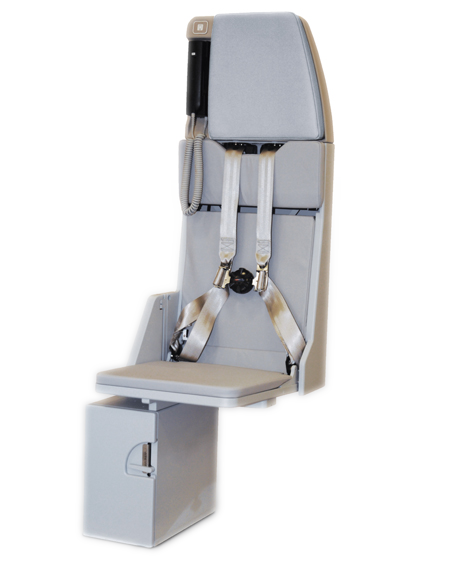Topics
What you learn – in detail!
TOPIC 1 – General theoretical knowledge of aviation and aviation regulations covering all elements relevant to the duties and responsibilities required from cabin crew
- aviation terminology, theory of flight, passenger distribution, areas of operation, meteorology and effects of aircraft surface contamination;
- aviation regulations relevant to cabin crew and the role of the competent authority;
- duties and responsibilities of cabin crew during operations and the need to respond promptly and effectively to emergency situations;
- continuing competence and fitness to operate as a cabin crew member, including as regards flight and duty time limitations and rest requirements;
- the importance of ensuring that relevant documents and manuals are kept up-to-date, with amendments provided by the operator as applicable;
- the importance of cabin crew performing their duties in accordance with the operations manual of the operator;
- the importance of the cabin crew’s pre-flight briefing and the provision of necessary safety information with regards to their specific duties; and
- the importance of identifying when cabin crew members have the authority and responsibility to initiate an evacuation and other emergency procedures.
TOPIC 2 - Communication
- the importance of effective communication between cabin crew and flight crew, including communication techniques, common language and terminology.
TOPIC 3 - Introductory course on human factors (HF) in aviation and crew resource management (CRM)
- human factors in aviation, general instructions on CRM principles and objectives, human performance and limitations;
- personality awareness, human error and reliability, attitudes and behaviours, self-assessment; stress and stress management; fatigue and vigilance; assertiveness; situation awareness, information acquisition and processing.
TOPIC 4 – Passenger handling and cabin surveillance
- the importance of correct seat allocation with reference to aeroplane mass and balance, special categories of passengers and the necessity of seating able-bodied passengers adjacent to unsupervised exits;
- rules covering the safe stowage of cabin baggage and cabin service items and the risk of it becoming a hazard to occupants of the passenger compartment or otherwise obstruction or damaging emergency equipment or exits;
- advice on the recognition and management of passengers who are, or become, intoxicated with alcohol or are under the influence of drugs or are aggressive;
- precautions to be taken when live animals are carried in the passenger compartment;
- duties to be undertaken in the event of turbulence, including securing the passenger compartment; and
- methods used to motivate passengers and the crowd control necessary to expedite an emergency evacuation.
TOPIC 5 - Aero-medical aspects and first-aid
- general instruction on aero-medical aspects and survival, the physiological effects of flying with emphasis on hypoxia, oxygen requirements, Eustachian tubal function and barotraumas;
- basic first-aid, including care of:
- air sickness;
- gastro-intestinal disturbances;
- hyperventilation;
- burns;
- wounds;
- the unconscious; and
- fractures and soft tissue injuries;
- in-flight medical emergencies and associated first-aid covering at least:
- asthma;
- stress and allergic reactions;
- shock;
- diabetes;
- choking;
- epilepsy;
- childbirth;
- stroke; and
- heart attack;
- the use of appropriate equipment including first-aid oxygen, first-aid kits and emergency medical kits and their contents;
- the practical cardio-pulmonary resuscitation training by each cabin crew member using a specifically designed dummy and taking account of the characteristics of an aircraft environment; and
- travel health and hygiene, including:
- hygiene on board;
- risk of contact with infectious diseases and means to reduce such risks;
- handling of clinical waste;
- aircraft disinsection;
- handling of death on board; and
- alertness management, physiological effects of fatigue, sleep physiology, circadian rhythm and time zone changes.
TOPIC 6 - Dangerous goods in accordance with the applicable ICAO Technical Instructions – CAT 11/17
- General Philosophy;
- Limitations;
- Labelling and Marking;
- Recognition of undeclared dangerous goods;
- Provisions for passengers and crew; and
- Emergency procedures.
TOPIC 7 - General security aspects in aviation, including awareness of the provisions laid down in Regulation (EC) No 300/2008.
- Airport Security;
- Demarcated Areas;
- Aircraft Security;
- Passenger and cabin baggage;
- Hold baggage;
- Cargo and Mail;
- Air Carrier Mail and Air Carrier Materials;
- In-flight Supplies;
- Airport Supplies;
- In-flight Security Measures;
- Staff Recruitment and Training; and
- Security Equipment.
TOPIC 8 - Fire and smoke training
- emphasis the responsibility of cabin crew to deal promptly with emergencies involving fire and smoke and, in particular, emphasis on the importance of identifying the actual source of the fire;
- the importance of informing the flight crew immediately, as well as the specific actions necessary for coordination and assistance, when fire or smoke is discovered;
- the necessity for frequent checking of potential fire-risk areas including toilets, and the associated smoke detectors;
- the classification of fires and the appropriate type of extinguishing agents and procedures for particular fire situations;
- the techniques of application of extinguishing agents, the consequences of misapplication, and of use in a confined space including practical training in fire-fighting and in the donning and use of smoke protection equipment used in aviation; and
- the general procedures of ground-based emergency services at aerodromes.
TOPIC 9 - Survival training
- principles of survival in hostile environments (e.g. polar, desert, jungle, sea); and
- water survival training which shall include the actual donning and use of personal flotation equipment in water and the use of slide-rafts or similar equipment, as well as actual practice in water.

Take your Seat
On one of our upcoming Dublin Training Courses:
Spring/Summer 2019
Location
19 Grange Parade, Baldoyle
Dublin 13, Ireland
+353 (0)1 912 1969
hello@cabincreweurope.com
Follow Us
Subscribe
CCE HQ
© 2018 Cabin Crew Europe Limited. Registered in Ireland No. 609811. All rights reserved.
